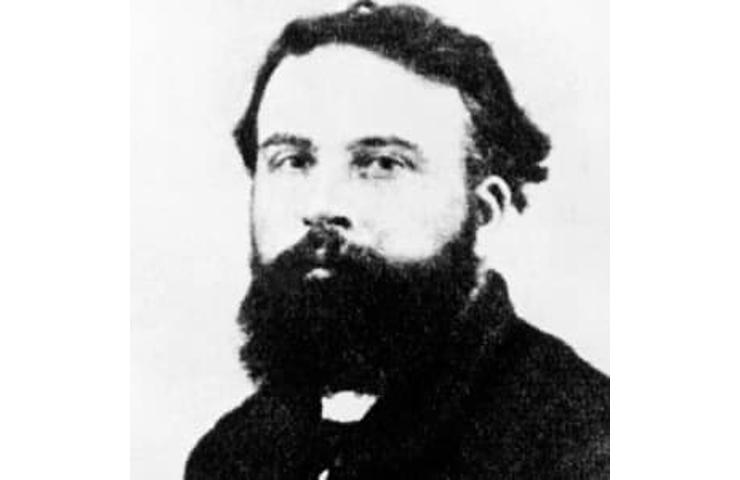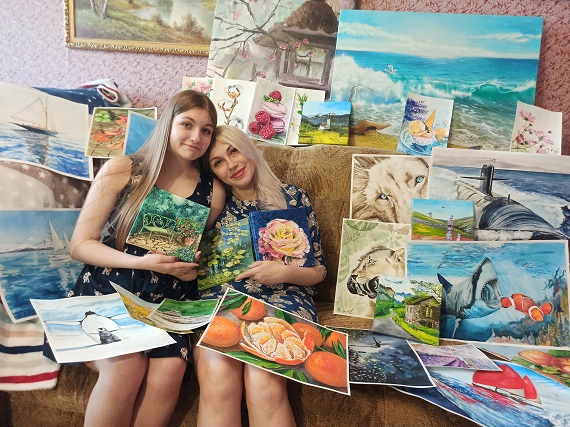No products in the cart.

Painter (1844–1910)
The French artist Henri Rousseau (1844-1910) was a self-taught painter who became a friend of Picasso and an inspiration to the Paris avant-garde.
Synopsis
Henri Rousseau was born on May 21, 1844, in Laval, France. While working as a toll collector in Paris, he taught himself to paint and exhibited his work almost annually from 1886 until the end of his life. He was given the nickname “Le Douanier” (“the customs officer”) by his acquaintances in the Parisian avant-garde. Despite his connections with other artists and dealers, he never profited from his paintings; however, works like “The Dream,” “The Sleeping Gypsy” and “Carnival Evening” influenced many artists who came after him. He died in Paris on September 2, 1910.
Early Life and Work
Henri Julien Félix Rousseau was born into a middle-class family in the town of Laval in northwest France on May 21, 1844. Rousseau attended school in Laval until 1860. In his late teens, he worked for a lawyer and then enlisted in the army, although he never saw combat. In 1868, Rousseau left the army and moved to Paris, where he began working as a toll collector at the entrance to the city.
Rousseau as Artist
Meanwhile, Rousseau had begun to paint in his spare time. He never had a formal art education; instead, he taught himself by copying paintings in the art museums of Paris and by sketching in the city’s botanical gardens and natural history museums.
Perhaps because he had not studied art according to any prescribed method or under any teacher’s supervision, Rousseau developed a highly personal style. His portraits and landscapes often had a childlike or “naïve” quality, since he had not learned anatomy or perspective; their vivid colors, ambiguous spaces, non-realistic scale and dramatic intensity gave them a dreamlike quality. Sometimes Rousseau incorporated details inspired by paintings he had viewed at museums or images he had seen in books and magazines, transforming them into elements of his own visions.
Many of Rousseau’s signature paintings depicted human figures or wild animals in jungle-like settings. The first of these works was “Tiger in a Tropical Storm” of 1891 (now at the National Gallery in London).
‘Le Douanier’ and the Avant-Garde
Although Rousseau’s art was not understood or accepted by the conservative, official art world of Paris, he was able to show his work in annual exhibitions organized by the Société des Artistes Indépendants. He submitted works to these open, un-juried shows from 1886 until the end of his life. His art was seen and appreciated by established artists such as Camille Pissarro and Paul Signac, who praised his direct, emotional approach to his subject matter.
In 1893, at the age of 49, Rousseau retired from his work as a toll collector and dedicated himself to his art. That year he met the writer Alfred Jarry, who gave him the nickname “Le Douanier” (“the customs officer”). Jarry introduced Rousseau to members of the Parisian artistic and literary avant-garde, including Pablo Picasso, Guillaume Apollinaire, Max Jacob and Marie Laurencin, all of whom became admirers of his art. Rousseau also formed business relationships with important dealers; however, despite these connections, he made very little money from his art.
Death and Artistic Legacy
Rousseau died on September 2, 1910, in Paris. His work continued to influence other artists, from his friend Picasso to Fernand Léger, Max Ernst and the Surrealists. His paintings are held in museum collections around the world. The Museum of Modern Art in New York owns two of his most famous works, “The Sleeping Gypsy” (1897) and “The Dream” (1910), which depicts a nude woman on a couch magically transported to a lush jungle inhabited by exotic birds and beasts. Other works belong to the National Gallery of Art in Washington, D.C.; the Philadelphia Museum of Art; the Hermitage Museum in St. Petersburg, Russia; and the Beyeler Foundation in Basel, Switzerland, among many other institutions.


